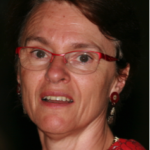Lien vers Pubmed [PMID] – 16513748
J. Bacteriol. 2006 Mar;188(6):2184-97
YrzC has previously been identified as a repressor controlling ytmI expression via its regulation of YtlI activator synthesis in Bacillus subtilis. We identified YrzC as a master regulator of sulfur metabolism. Gene expression profiles of B. subtilis delta yrzC mutant and wild-type strains grown in minimal medium with sulfate as the sole sulfur source were compared. In the mutant, increased expression was observed for 24 genes previously identified as repressed in the presence of sulfate. Since several genes involved in the pathways leading to cysteine formation were found, we propose to rename YrzC CymR, for “cysteine metabolism repressor.” A CymR-dependent binding to the promoter region of the ytlI, ssuB, tcyP, yrrT, yxeK, cysK, or ydbM gene was demonstrated using gel shift experiments. A potential CymR target site, TAAWNCN2ANTWNAN3ATMGGAATTW, was found in the promoter region of these genes. In a DNase footprint experiment, the protected region in the ytlI promoter region contained this consensus sequence. Partial deletion or introduction of point mutations in this sequence confirmed its involvement in ytlI, yrrT, and yxeK regulation. The addition of O-acetylserine in gel shift experiments prevented CymR-dependent binding to DNA for all of the targets characterized. Transcriptome analysis of a delta cymR mutant and the wild-type strain also brought out significant changes in the expression level of a large set of genes related to stress response or to transition toward anaerobiosis.



